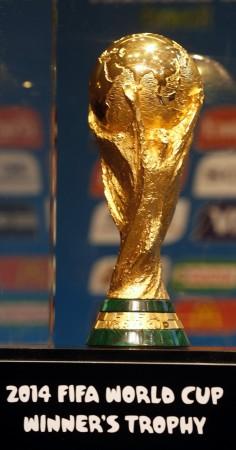
The much-awaited sporting extravaganza FIFA World Cup 2014 is all set to kick off in a couple of days' time in Brazil. It brings memories of the story of the Indian football team which was supposed to play in the tournament held in the same country 64 years ago. India missed the chance and has not got another one till now.
The Indian team stunned the world at the 1948 Summer Olympics in London by playing barefoot. It was the country's first appearance in an international sporting event after gaining independence from Britain, and their narrow 1-2 defeat to France in the first round of the tournament drew plenty of attention.
It was clear that India would not play in the 1950 FIFA World Cup in Brazil, after FIFA announced that no country would be allowed to take part in the tournament without footwear. But as fate would have it, India was given the chance to make its first appearance in the World Cup after Philippines, Indonesia and Burma withdrew from the tournament.
With defending finalists, Brazil and Italy automatically qualifying for the tournament, FIFA wanted seven countries from Europe, six from the Americas and one from Asia.
India, Philippines, Indonesia and Burma were all invited to qualification round but the latter three withdrew before it. This chain of events gave India automatic entry to the World Cup but it also withdrew later.
Several theories have been doing the rounds on why India also decided to withdrew from the world's most popular sporting event. Some argue that the Indian football team had to withdraw after being barred from playing barefoot, while others say it was due to financial constraints or the lack of awareness of the game.
Barefoot Theory
FIFA did make it clear that India could not not play barefoot in the World Cup but they might have made an exception under certain circumstances.
While not ruling out the possibility of withdrawing from the tournament due to FIFA's directive to play with footwear, India might have been allowed to take part as the sporting governing body desperately wanted a representative from Asia.
Financial Constraints
It was not easy to travel to Brazil from countries like India, Burma, Philippines and Indonesia in 1950. Countries withdrawing from the tournament due to financial constraints was not uncommon then, so there were speculations that India might have pulled out of the World Cup for the same reason.
However, since the tournament organizers were understood to have agreed to meet most of the travel expenses of the Indian team, to ensure representation from Asia, this theory can be ruled out.
Lack of Awareness
The All India Football Federation (AIFF) and other Asian countries apparently considered the World Cup as insignificant, concentrating more on the Olympics. The fact that Philippines, Indonesia and Burma withdrew from the tournament even before the qualifiers, combined with the eventual pull-out by India, gives a clear hint that there was lack of awareness about the sporting event among Asian countries those days.
Sailen Manna, who was supposed to lead the India at the 1950 World Cup, had stated that the AIFF was not serious about the tournament.
"We had no idea about the World Cup then. Had we been better informed, we would have taken the initiative ourselves. For us, the Olympics was everything. There was nothing bigger," Manna told Sports Illustrated.
In his recently released book "The Football Fanatic's Essential Guide", football commentator Novy Kapadia called India's withdrawal from the 1950 World Cup as a "missed opportunity" and ruled out the "barefoot" theory.
"The apprehension that Indian players would have been out of depth because they had to wear football boots is exaggerated. It has just become a self-perpetuating myth," wrote Kapadia.
While the "barefoot" and "financial constraints" theories cannot be ruled out completely, it looks like India missed the opportunity to play in the World Cup due to the lack of awareness among AIFF officials.
Manna stressed that Indian football would have been in a different state today, had they not missed that first chance.









